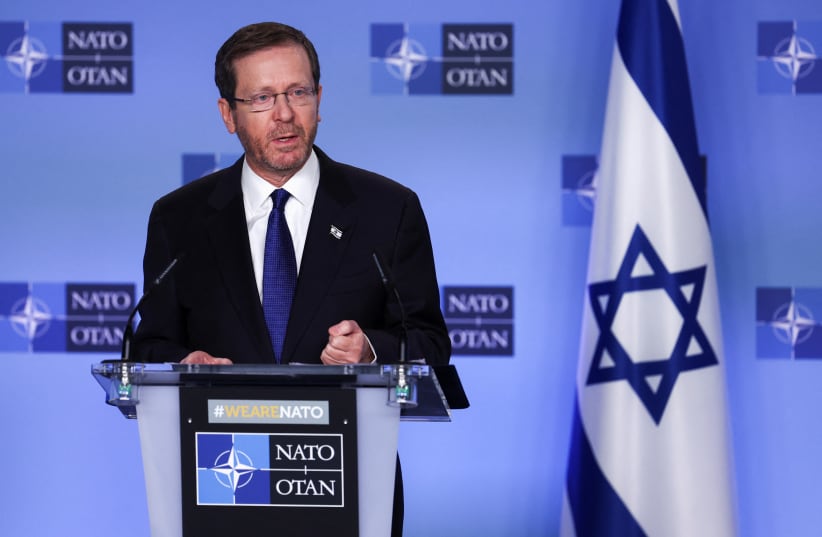President Isaac Herzog on Wednesday openly gave a speech which was partially written by ChatGPT to the Cybertech conference in Tel Aviv.
Herzog said that both his opening and closing to the speech were written by ChatGPT, saying “the bots spun into action,” as a way of showing what he called are the amazing achievements of the cyber and hi-tech industries.
At the technological forefront
He said, “I am truly proud to be president of a country to be host of the innovative hi-tech industry. Israel is consistently at the forefront of technological advancement, Its achievements in cybersecurity, AI [artificial intelligence], and big data,” are tremendous.
“From developing cybersecurity technology to successful startups” Israel is having “a significant impact on the global stage,” said Herzog.
Further, he said, “not only are machines taking on tasks which once only humans could perform, they are performing tasks which humans could never dream could be done - pushing the boundaries of the imagination and of what is possible.”
Next, he said, “we must never forget the human spirit - no computer …can ever replace human DNA . Hardware and software cannot replace human will.”
He said that the “ultimate challenge is to set our eyes on the horizon, but on our fellow humans as well.”
Also at the conference, there was a panel on aviation cybersecurity.
One of the panelists said that they reviewed the area around Cyprus and “found that around 70% of the trajectories of aircraft through that airspace are jammed.”
This stunning fact came as part of the conversation about the potential for hacking aircraft’s nav instruments, which could lead to very dangerous scenarios.
The same aviation expert said that currently, hackers can use the publicly open GitHub online platform “to download software to do GPS spoofing – the simulating of signals of real satellites, by giving the user the impression they are at a different place or on a different trajectory than they are. It is not so hard to do.”
On the positive side, he said, “there are countermeasures. We try to work with consumer off-the-shelf material. It is easy to detect attacks” given that aircraft send multiple signals to the ground.
“You can check if the aircraft is getting accurate signals or not,” by cross-checking the signals, even if one of the signals is hacked, he explained.
Japanese NTT Holdings CEO Kazu Yozawa said that Japan, his company and partner companies and nations are working on pushing back against potential cyber attacks from China and North Korea.
Yozawa said that top level and timely cyber intelligence data was crucial “for making accurate decisions for hybrid warfare.”
The Japanese NTT Holdings CEO stated that one area where it and others can improve is by “utilization of internet backbone traffic.”
In other words, immense amounts of data flow through his companies networks.
Although Yozawa and others are prohibited from looking into the specific metadata of their customers by law, the capability to analyze volumes of flows of data can help detect spikes, which can indicate hacking attempts.
Looking at these flows does not violate the law because it does not require looking into the metadata itself, only at the volume and pace of data flows.
Former Israel Electric Company CEO and IDF Maj. Gen. (res.) Yiftach Ron Tal told the conference that cyber attacks have exploded in an “almost unbelievable way.”
He also warned of the quantum computing revolution in which all new levels of hacking will become possible.
Ron Tal said that the world is at a disadvantage in defending against hackers now that it is a “divided and afflicted world” following the Russian invasion of Ukraine.
At the same time, he said that the West has advantages over Russia in planning and coordination when it comes to cyberwarfare.
Ron Tal said that these advantages are a big part of why Moscow’s attempts to hack Ukraine apart digitally have failed despite its superior cyber prowess.


